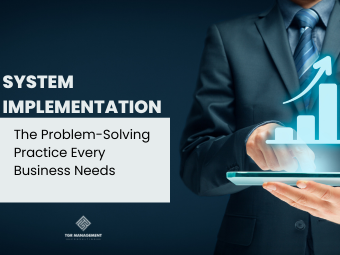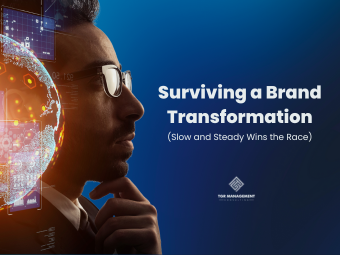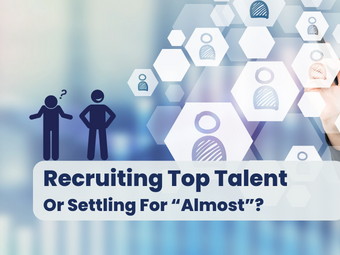There’s no escaping the transformation AI and process automation have already had on how we operate our businesses. According to Statista, the global artificial intelligence (AI) software market will reach around 126 billion U.S. dollars by 2025. One area that’s seen a surge in AI-powered tools is productivity. A glance at articles, like this one on Renaissance Rachel’s site, showcases a plethora of AI-driven productivity tools. Each promises to revolutionize our work, offering faster results, deeper insights, and heightened automation.
But here’s where my skepticism kicks in, especially regarding project management tools. While 53% of businesses have already started their AI journey, not all implementations have been successful. Many tools echo similar promises: efficiency, simplicity, and unparalleled insights. But how many truly deliver on these promises? And is it really worth the time, money, and energy that is spent learning these new tools? With the rise of AI-powered tools and business process automation, will AI and process automation in the project management space be as transformative as we believe?
These are all questions that I intend to explore to help you make an informed decision the next time you consider investing in an AI tool that makes these claims.
Do You Need to Know How It Works?
Before we dive deeper, let’s get acquainted with the idea of being “AI Aware.” This concept serves as a compass for navigating the economic, ethical, and practical dimensions of AI. Being “AI Aware” equips executives to answer more significant questions about accountability, responsibility, partnerships, and system choices.
I’ve worked with many C-Suite-level executives, and when it comes to understanding tools for their business, they tend to fall somewhere on a spectrum. On one end, you have those who feel like they have to understand every detail about a new initiative (even information that others might think is irrelevant to the tool’s action within their company). Conversely, those who only want to know how it’ll impact their bottom line.
Both of these approaches can work – but data-driven and strategy-driven decisions are often more successful. Grasping the intricacies of natural language processing (NLP), structured and unstructured data, and RPA bot capabilities can help you better grasp how these technologies inevitably impact your bottom line.
For executives, this knowledge is the bedrock of informed decisions about partnerships, system choices, and corporate responsibility. Being “AI Aware” also helps answer more significant questions about how the company should or should not use AI, fostering corporate accountability and responsibility.
In short, it’s in your best interest to understand it.
Is Project Management About to Transform?
In the paper “Evolution of Project Management of a Scientific Discipline,” Author A. Abbassi reflects on the history of project management and the role of technology within it. When we started, most tech consisted of essential tools that aided scheduling, resource allocation, and budgeting. You know – spreadsheets.
Oh, how far we’ve come!
In the past ten years, we’ve gained access to tools that allow for more collaboration, real-time updates and communication, and access to more data than ever before to enable data-driven decision-making to take the lead. More recently, in the project management space, automation technologies, including machine learning and AI capabilities, have evolved to transform what workspaces and schedules look like, reducing human error and improving efficiency. I’m talking about basic tools here, such as Grammarly and, yes, even ChatGPT in specific spaces.
In our current landscape, we’re looking to take all those transformations and, from what I can see, push them further.
So…What Does that Mean for The Future of Project management?
From where I’m sitting? Very little. That list of AI Productivity tools isn’t a list of tools that can replace humans. If anything, they make it more possible for project managers to shape their schedules and approach their work with more automation at their fingertips than ever before. But is that as great as it seems?
Start With Standardization…Then, Work Toward Automation
People get excited about automation. But in their excitement, they can skip the critical step of standardization. If a business can’t reach a standard, it can’t get to automation. And if it can’t get to automation, it won’t get to AI. AI systems, especially those used for automation, thrive on predictability. When a process is standardized, it follows a set pattern. This predictability allows AI systems to learn the pattern and then automate it.
The best advice I can give you is to closely examine your operations and determine where there is room for improvement and standardization.
This is true for investing in any kind of technology transformation. You have to have the right systems and an understanding of your organization’s standards before attempting to shake things up. Henry Ford didn’t invent the automobile; he standardized its production. Standardizing it with the assembly line production made later automation within the automotive industry possible.
So, before you dive into the world of AI-powered platforms and embrace the promise of reducing costs and increasing efficiency, take a moment to assess your readiness for such a transformative journey.
Humans are unpredictable little things. There’s always a need for nuance, and AI isn’t there…yet.
Tiffany Rosik, founder and CEO of TGR Management Consulting, specializes in guiding Fortune 1000 companies through the complexities of integrating technology into their operations. Tiffany’s approach transcends conventional consulting. She emphasizes synchronizing business and technological endeavors with the evolving market landscape, ensuring sustained growth and adaptability. Connect or follow Tiffany Rosik on LinkedIn.




